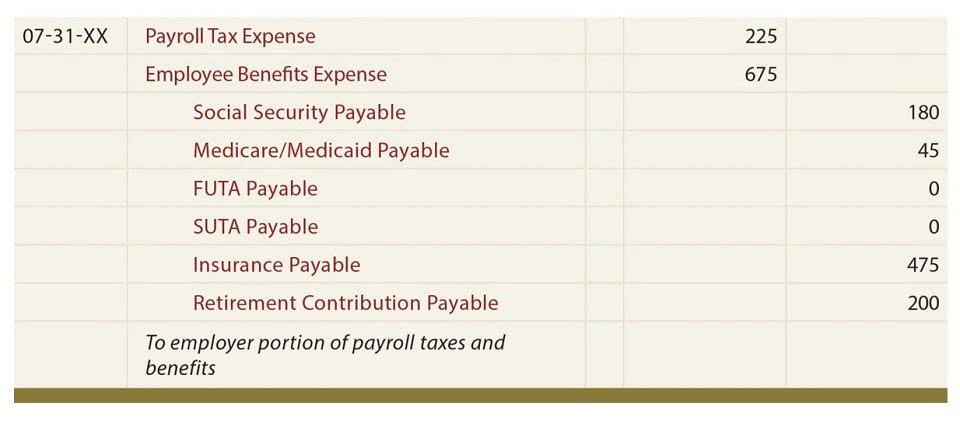
Unearned revenue is also referred to as deferred revenue and advance payments. You will, therefore, need to make two double-entries in your business’s records when it comes to unearned revenue, once when it is received, and again when it is earned. Every month, once James receives his mystery boxes, Beeker’s will remove $40 from unearned revenue and convert it to revenue instead, as James is now in possession of the goods he purchased. Unearned revenue and deferred revenue are the same things, as are deferred income and unpaid income.
Example of Deferred Revenue

Deferred revenue is recognized as a liability on the balance sheet of a company that receives an advance payment because it has an obligation to the customer in the form of the products or services owed. The payment is considered a liability to the company because there’s a possibility that the good or service may not be delivered or the buyer might cancel the order. Unearned revenue or deferred revenue is considered a liability in a business, as it is a debt owed to customers. It is classified as a current liability until the goods or services have been delivered to the customer, after which it must be converted into revenue. Unearned revenue on a balance sheet is a current liability because it is a debt until the goods or services are delivered to the customer who paid.
- Services that will take over a year to deliver upon should be marked as a long-term liability on the balance sheet.
- In terms of accounting for unearned revenue, let’s say a contractor quotes a client $5,000 to remodel a bathroom.
- • Common examples of unearned income include subscription-based products, prepaid insurance, and advance rent payments.
- Businesses can benefit from unearned income because customers pay in advance to receive their products or services.
- This leads to an increased risk in delayed invoices, quotes being incorrect, or complex configurations causing errors and missed revenue and an imbalance in accounts receivable.
How Do You Record Deferred Revenue in an Account?
It is recorded on a company’s balance sheet as a liability because the revenue has still not been earned and represents products or services owed to a customer. As the prepaid service or product is gradually delivered over time, it is recognized as revenue on the income statement. It is treated as a liability because the revenue has still not been earned and represents products or services owed to a customer. As the prepaid service or product is gradually delivered over time, it is recognized as revenue on the income statement. Deferred revenue, also known as unearned revenue, refers to advance payments a company receives for products Bookstime or services that are to be delivered or performed in the future.
What Deferred Revenue Is in Accounting, and Why It’s a Liability

Unbilled revenue can create cash flow challenges and lead to lost revenue opportunities. The process can quickly get out of hand and become complex and stressful and negatively impact your business’s financial health. You need to recognize revenue and be able to accurately report it for your income statement in addition to tracking metrics internally. Since the risk for unbilled revenue in SaaS is particularly high, leaving your ARR (annual recurring revenue) vulnerable. The company would have to repay the customer in either case unless other payment terms were explicitly stated in a signed contract.
COMPANY
Consumers, meanwhile, generate deferred revenue as they pay upfront for an annual subscription to the magazine. A publishing company may offer a yearly subscription of monthly issues for $120. This means the business earns $10 per issue each month ($120 divided by 12 months).

Real-time visibility into unbilled revenue with CPQ analytics
- This is why it is crucial to recognize unearned revenue as a liability, not as revenue.
- Unearned revenue refers to the money small businesses collect from customers for a or service that has not yet been provided.
- Unearned revenue is money received by a company for a service or product that has yet to be provided or delivered.
- At this point, you may be wondering how to calculate unearned revenue correctly.
It’s recognized proportionally as revenue on the income statement as the product or service is delivered over time. However, a business owner must ensure the timely delivery of products to its consumers to keep transactions steady and drive customer retention. This is why it is crucial to recognize unearned revenue as a liability, not as revenue. A business generates unearned revenue when a customer pays for a good or service that has yet to be provided. Unearned revenue is most commonly understood as a prepayment provided by a customer or client who expects the business to deliver an item or service on time as agreed upon at the time of the purchase. At the end of the six months, all unearned revenue has converted into revenue, since all money received accounts for the six mystery boxes that have been paid for.
Where does unearned revenue go on a balance sheet?
- Maintaining a consistent cash flow and accurate invoices needs to be a top priority, and there are tools like CPQ that can help you manage this easily.
- For example a company might use prepayments to purchase more inventory or pay off a small business loan.
- Unearned revenue is most common among companies selling subscription-based products or other services that require prepayments.
- By delivering the goods or service to the customer, a company can now credit this as revenue.
- Once a delivery has been completed and your business has finally provided prepaid goods or services to your customer, unearned revenue can be converted into revenue on your balance sheet.
- Unbilled revenue, or revenue that has been earned but not yet invoiced, can pose a significant challenge for businesses.
This journal entry reflects the fact that the business has an influx of cash but that cash has been earned unearned revenues are amounts received in advance from customers for future products or services. on credit. • Unearned revenue is money received by a business for goods or services not yet delivered and is considered a liability (money a company owes). Deferred revenue is typically reported as a current liability on a company’s balance sheet because prepayment terms are typically for 12 months or less.
How Deferred Revenue Works
As a result of this prepayment, the seller has a liability equal to the revenue earned until the good or service is delivered. This liability is noted under current liabilities, as it is expected to be settled within a year. Here is an example of Beeker’s Mystery Box and what their balance sheet might look like. As you can see, the unearned revenue will appear on the right-hand side of the balance sheet in the current liabilities column. By having strategies like this in place you can protect your business and minimize the risk of losing out and having to backtrack to make up unbilled revenue in balance sheets. This leads to an increased risk in delayed invoices, quotes being incorrect, or complex configurations causing errors and missed revenue and an imbalance in accounts receivable.
When the customer prepays for the product or service, that income is considered unearned income because the goods and services have not yet been delivered. Unearned revenue is the money received by a business from a customer in advance of a good or service being delivered. It is the prepayment a business accrues and is recorded balance sheet as a liability on the balance sheet until the customer is provided a service or receives a product. Deferred revenue is recorded as such because it’s money that hasn’t yet been earned. Your business needs to record unearned revenue to account for the money it’s received but not yet earned. Recording unearned revenue is important because your company can’t account for it until you’ve provided your products or services to a paying customer.
